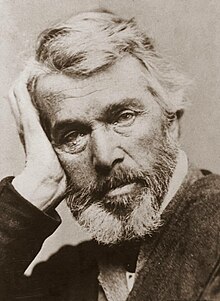Wage
Appearance
(Redirected from Payroll)

~ Apollonius of Tyana


A wage is monetary compensation paid by an employer to an employee in exchange for work done.
Quotes
[edit]- Plato said that virtue has no master [Republic 617e]. If a person does not honor this principle and rejoice in it, but is purchasable for money, he creates many masters for himself.
- Apollonius of Tyana, Letter to Euphrates, Epp. Apoll. 15
- Thou shalt not defraud thy neighbour, neither rob him: the wages of him that is hired shall not abide with thee all night until the morning.
- Leviticus 19:13 The Bible KJV
- Fair day's-wages for fair-day's-work! exclaims a sarcastic man; alas, in what corner of this Planet, since Adam first awoke on it, was that ever realised? The day's-wages of John Milton's day's-work, named Paradise Lost and Milton's Works, were Ten Pounds paid by instalments, and a rather close escape from death on the gallows.
- Thomas Carlyle Past and Present 1843
- The owner of the means of production is in a position to purchase the labor power of the worker. By using the means of production, the worker produces new goods which become the property of the capitalist. The essential point about this process is the relation between what the worker produces and what he is paid, both measured in terms of real value. In so far as the labor contract is free what the worker receives is determined not by the real value of the goods he produces, but by his minimum needs and by the capitalists' requirements for labor power in relation to the number of workers competing for jobs. It is important to understand that even in theory the payment of the worker is not determined by the value of his product.
- The bourgeoisie has gained a monopoly of all means of existence in the broadest sense of the word. What the proletarian needs, he can obtain only from this bourgeoisie, which is protected in its monopoly by the power of the state. The proletarian is, therefore, in law and in fact, the slave of the bourgeoisie, which can decree his life or death. ... The bourgeoisie ... lets him have the appearance of acting from a free choice, of making a contract with free, unconstrained consent, as a responsible agent who has attained his majority. Fine freedom, where the proletarian has no other choice than that of either accepting the conditions which the bourgeoisie offers him, or of starving, of freezing to death, of sleeping naked among the beasts of the forests!
- We are not utopians, we do not indulge in "dreams" of dispensing at once with all administration, with all subordination; these anarchist dreams…serve only to postpone the socialist revolution until human nature has changed. No, we want the socialist revolution with human nature as it is now, with human nature that cannot dispense with subordination, control and "managers." … The united workers themselves … will hire their own technicians, managers and bookkeepers, and pay them all, as, indeed, every state official, ordinary workmen's wages.
- Vladimir Ilyich Lenin, The State and Revolution, in Essential Works of Lenin (1966), pp. 307–308.
- It thus appears, that if population increases, without an increase of capital, wages fall; and that if capital increases, without an increase of popidation, wages rise. It is evident, also, that if both increase, but one faster than the other, the effect will be the same as if the one had not increased at all, and the other had made an increase equal to the difference.
- James Mill 1773-1836 Elements of political economy 1821
- Our wages can't buy all the wealth we produce;
So the factories shut down and we are turned loose.- The Little Red Songbook (1909), p. 93
- The worker's existence is thus brought under the same condition as the existence of every other commodity. The worker has become a commodity, and it is a bit of luck for him if he can find a buyer, And the demand on which the life of the worker depends, depends on the whim of the rich and the capitalists.
- Karl Marx, Paris Manuscripts (1844), p. 20.
- In my Inaugural I laid down the simple proposition that nobody is going to starve in this country. It seems to me to be equally plain that no business which depends for existence on paying less than living wages to its workers has any right to continue in this country. By "business" I mean the whole of commerce as well as the whole of industry; by workers I mean all workers, the white collar class as well as the men in overalls; and by living wages I mean more than a bare subsistence level-I mean the wages of decent living.
- Franklin D. Roosevelt, "Franklin Roosevelt's Statement on the National Industrial Recovery Act", (16 June 1933), qtd. in Teresa Tritch, "F.D.R. Makes the Case for the Minimum Wage", New York Times, (March 7, 2014).
- No man can be a good citizen unless he has a wage more than sufficient to cover the bare cost of living, and hours of labor short enough so after his day’s work is done he will have time and energy to bear his share in the management of the community, to help in carrying the general load.
- Theodore Roosevelt, The New Nationalism (1910)
- It is difficult to get a man to understand something, when his salary depends upon his not understanding it!
- Upton Sinclair I, Candidate for Governor: And How I Got Licked (1935), ISBN 0-520-08198-6; repr. University of California Press, 1994, p. 109.


